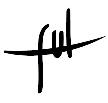At 10 o’clock this morning Judge John Hlophe will be outdoing himself. The Judge President of the Western Cape High Court is slated to present an event that, even for him, must be uniquely ironic. He, of all people, will be officiating at a formal ceremony that celebrates the integrity of our judicial process.
Judge Hlophe is often in the headlines. Allegations of misconduct have been levelled against him for more than a decade, yet he has managed to side-step the consequences.
In January, however, things took a turn for the worse when his deputy filed a litany of complaints against him. One of these, vehemently denied by the judge, was that he had confronted a colleague, Judge Mushtak Parker, in his chambers and assaulted him. Judge Parker supported his Judge President’s denial – but unfortunately for both of them, it then transpired that Judge Parker had not only told several of his colleagues about an assault, but had recorded his complaint in an affidavit at the time.
Last month the Chief Justice ruled that this assault charge could warrant impeachment. Meanwhile Judge Parker is himself facing impeachment for acts of dishonesty. One of them, piquantly, is that he (on oath) gave “two contradictory and mutually exclusive versions about an incident which appears to have happened in his Chambers on 25 February 2019 between himself and Judge President Hlophe”.
In the result it became widely known that these two judges are alleged to have been untruthful to the committee investigating the charges against them, Judge Hlophe by having advanced a false defence on the assault allegation and Judge Parker by having loyally but falsely supported this implausible defence.
Understandably the judiciary and the legal profession were scandalised, particularly in the Western Cape that has had to put up with Judge Hlophe for so long. But he was to produce yet another scandal. Last week, in an act of brazen defiance, the Judge President designated himself and his collaborator to preside at the ceremonial induction of some 70 new legal practitioners. This was intended – and is clearly identified – as thumbing his nose at the head of the country’s judiciary.
For the new cohort of legal practitioners due to be admitted, this unseemly confrontation must be a painful embarrassment, a travesty. They have passed all the examinations, jumped all the procedural hurdles, and will be eagerly looking forward to their admission to the legal profession. This is a solemn occasion. Each applicant’s case will be formally submitted by counsel and, if successful, the candidate will publicly take an oath (or make a solemn declaration) to uphold the honour of the profession. One of the judges may welcome the newcomers on behalf of the judiciary, adding a word of congratulation to them and their families. Finally, the solemnity of the ceremony may be enhanced by a brief homily from the Bench underscoring the need for absolute integrity in all a lawyer does.
Lockdown will necessitate material changes to the ordinary way in which admissions are handled. There can, for instance, be no personal attendance by the applicants nor a formal oath-taking in open court. The absence of these features that ordinarily add a sense of occasion to the proceedings may well cause officiating judges to make a special effort to imbue the proceedings with dignity.
This ceremonial introduction of newcomers underlines that practitioners are vital to the functioning of the courts. While commentators often praise our judiciary, little is said about the legal profession. What should be said loudly and repeatedly is that courts cannot function without competent and conscientious practitioners.
The ultimate object of the admission ceremony is to emphasise the fundamental importance of integrity. That is why candidates are required to promise in open court that they will adhere to the ethics of their honourable profession. It is plainly quite unacceptable that this solemn undertaking should be made before two judges who are both under ethical scrutiny. That makes a mockery of what should be a red-letter day for new practitioners and their families – a sordid charade for all who respect the rule of law.
We in Freedom Under Law have done what we could. We have taken all the steps available to us. We have raised our concerns when and where we thought appropriate. It has all been in vain. Hopefully this latest act of defiance will cause enough of a public outcry to galvanise those concerned into dealing once and for all with this unworthy judge.
Johann Kriegler is Chair of Freedom Under Law. This article originally appeared in Business Day.

